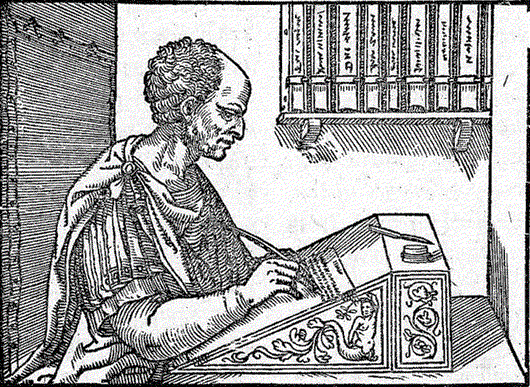Theories and Methods

Cicero writing a letter, woodcut, 1547; source: Wikimedia Commons
"World history", "new global history", "connected", "shared" or "entangled history", "transferts culturels" and "histoire croisée" – transcultural perspectives and approaches have been promoted and discussed under numerous labels; the debate, which has been going on for a quarter of a century, is as lively as ever. This thread presents central approaches and research perspectives with reference to a transcultural history of Europe: cultural transfer, transnational history, comparative history and postcolonial studies. These articles are supplemented by reflections on the concept of Europe, European history and historiography, as well as the approaches dealing with space and the history of ideas that are central to European History Online.
One survey article presents the approach of Historical Regions developed in the historical subdiscipline of East European History. It discusses non-territorialised mesoregions such as "South Eastern Europe", "Eurasia" and the "Black Sea Region". Comparative analyses investigate and contrast the structural characteristics of these regions. This links up in a number of ways to the methods discussed in the survey article Comparative History.
The fact that "Europe" was from the very beginning an imagined entity is evident in the article Europe as a Cultural Reference and Value System. It traces how the concepts and images that Europeans constructed of "Europe" changed over time: from the Christian republic in the 15th century to the Europe of the EU which, amongst other criteria, defines itself via the common values of parliamentary democracy and human and civil rights.

